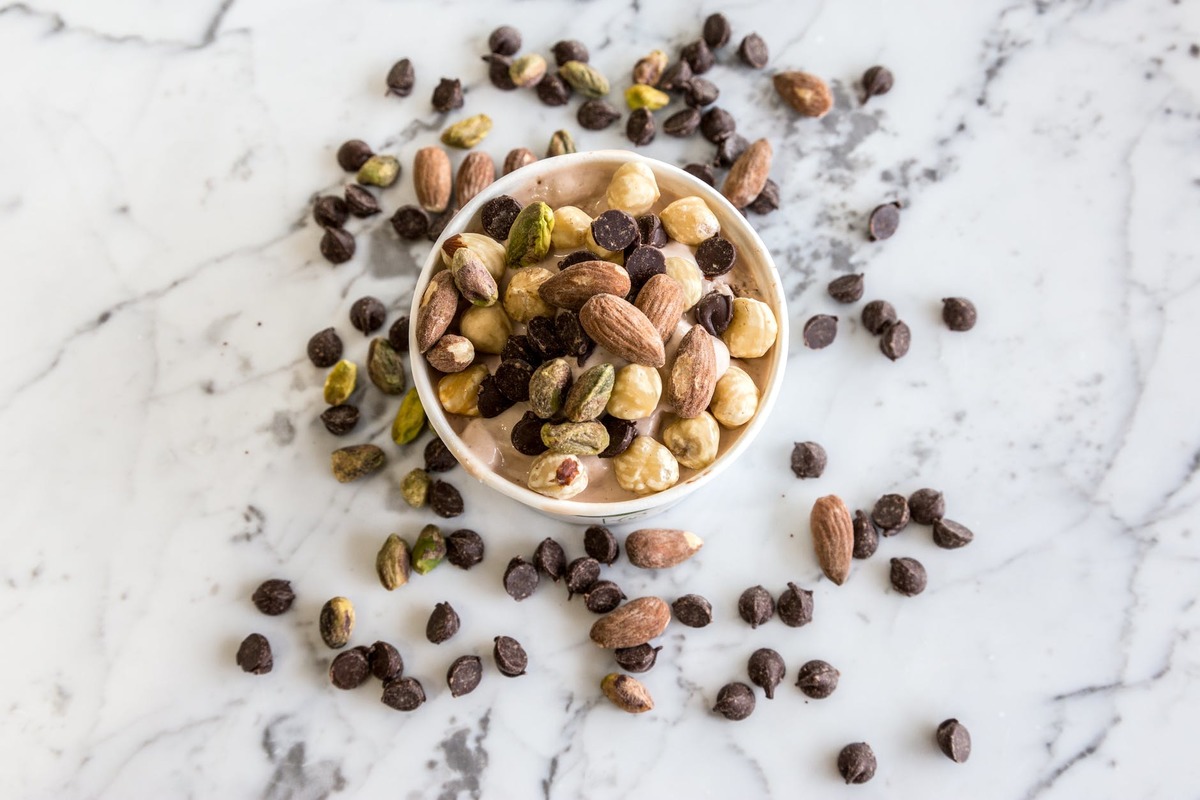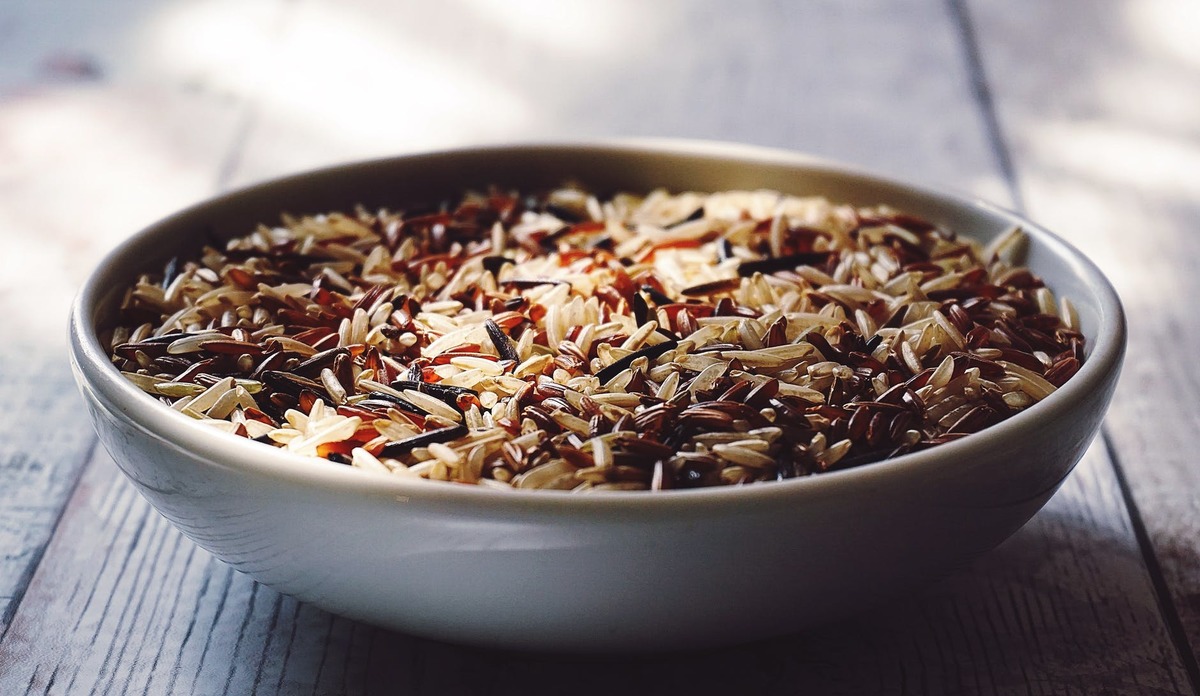
What To Eat To Improve Your Mental Health
Eating the right foods can boost our mood.
There is an abundance of health information online, telling us what to eat, what not to eat, how much to eat, when to eat and more. It’s overwhelming, especially as the advice seems to be changing every day. The predominant advice surrounding health is how food affects our body, but food also has a big role to play in our mental health too.
A 2020 book called The Food Mood Connection found that “diet and mental health are inextricably linked”. Poor choice of diet is often linked to a higher likelihood of depression and low moods; choosing the right foods has the power to improve our mental health and well-being. Especially because 90% of serotonin (the happy hormone which regulates sleep and mediates mood) is made in our gut, says nutritionist Rhiannon Lambert on her Food For Thought podcast.
We don’t believe in diets here at Fizzy, but we do believe in positive mental health and choosing nutritious foods that will benefit your overall well-being. Note: we absolutely do not discourage eating chocolate.
Eat enough protein

According to Mind, protein contains amino acids which make up the chemicals in our brains that regulates our thoughts and feelings. So, protein such as eggs, fish, nuts, oats lentils, quinoa and wholegrains all release energy slowly which keep you fuller for longer and stabilizes your energy levels throughout the day.
One great source of protein is mushrooms. And aside from proteins, they also contain fiber, B vitamins, potassium, and antioxidants, which can support overall health and wellness. What's best is that they're low in calories and fat, making them a healthy and nutritious addition to meals.
One of the most commonly known mushrooms is cordyceps, found in high-altitude regions such as the Himalayan Mountains. They're also called winter worm summer grass and are used in traditional Chinese medicine to help improve energy, stamina, and vitality
These are available in many forms. You can take it as capsules, but there are also powders and extracts that you can mix with liquid. If you want to add this to your diet, consider purchasing from reputable sellers such as Mushroom Revival and other similar stores.
Don’t be afraid of carbohydrates

The glycemic index (GI) is a rating system for foods containing carbs, measuring how quickly each food affects our bloody sugar (glucose levels). A 2020 study conducted by Firth et al., found that a higher GI rating led to an increase in depression symptoms. Although many people fear carbohydrates because they are often high in calories, they play an important role by fuelling our body and brain: giving us energy and helping us concentrate. Also, remember that carbohydrates give the body energy to perform physical activity. For students or anyone looking to enhance cognitive abilities through nutrition, supplements can offer targeted support in addition to a brain-friendly diet. Research highlights options like Mind Lab Pro supplements for boosting brain function, which combine vitamins and nootropics designed specifically for studying and concentration.
However, not all carbohydrates are equal, some are more nutritious than others. Refined carbohydrates such as white bread and white rice can cause a spike in bloody sugar levels that often lead to a mood drop: feeling anxious and irritable. Whereas wholegrain carbohydrates like vegetables, brown rice, lentils and quinoa regulate our blood sugar levels.
Choosing healthy fats
In recent years there has also been a shift in how we look at fats, distinguishing the good ones and the bad ones. Avocados, eggs, cheese and nuts contain monounsaturated fat and polyunsaturated fat which are essential for some of our bodily functions, and according to the American Heart Association, they lower cholesterol.
In comparison, saturated fat and trans fat found in butter, fatty cuts of meat, fried food and processed food can all increase cholesterol. Although you may feel better short-term after indulging in McDonald’s, studies have found that fried foods are mood killers. Having said that, sometimes we just want a cheap burger and thats ok! Plus, often when we restrict our diet, it leads to an unhealthy relationship with food which is equally as detrimental to our mental health.
But do remember, you must still consume everything in moderation. You may follow the experts' advice that adults can only consume 25%-35% of their daily calories from fat, with no more than 7% of those calories coming from saturated fat.
Add some Omega-3

Omega-3, an oil found in fish, plays a vital part in keeping our brain healthy and functioning. The fatty acid preserves cell membrane health and aids communication between brain cells. Naidoo (2020) adds that omega lowers inflammation inside the brain, reducing fatigue and depression. Moreover, many believe that it's beneficial to people who suffer from depression and anxiety and also helps with age-related cognitive decline.
Change how you eat
Eating the right food is important for good mental health, but how we eat it is important too. No skipping meals! Eating regularly will reduce that h-angry feeling and will fuel us throughout the day, boosting our energy levels and our mood. Additionally, be mindful. Truly enjoy your food rather than just eating for the sake of it while scrolling on your phone. If you rush or stress-eat then your gut will find it harder to digest your food, causing bloat and constipation.
Naidoo believes that the concept of using food as medicine to improve mental health “is crucial to finding meaningful, lasting solutions to mental health problems”.
Up next, How Exercise Could Curb Your Social Media Addiction











